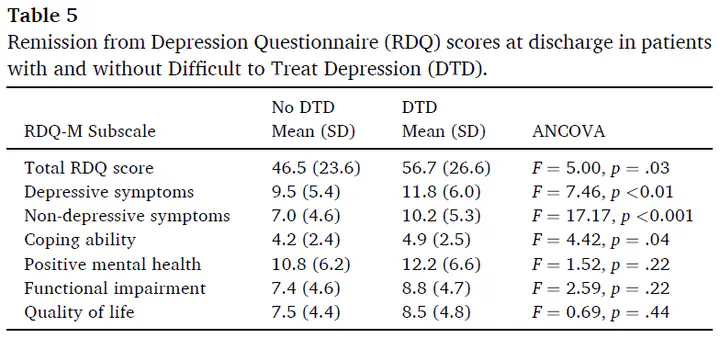
Abstract
It has recently been recommended that treatment resistant depression be reconceptualized and renamed as difficult to treat depression (DTD). A consensus statement by an expert panel identified multiple variables associated with DTD and emphasized the importance of conducting a comprehensive evaluation of patients to identify predictors of inadequate treatment response. For practical reasons, it would be desirable to develop a self-report scale that can be incorporated into clinical practice that identifies patient, clinical, and treatment risk factors for DTD. Nine hundred twenty depressed patients completed the Difficult to Treat Depression Questionnaire (DTDQ). A subset of patients completed the scale a second time and completed the Remission from Depression Questionnaire at admission and discharge from a partial hospital program. The DTDQ demonstrated excellent internal consistency and test-retest reliability. Both the total DTDQ and the number of prior failed medication trials, the metric primarily relied upon to classify treatment resistant depression, predicted outcome. However, the DTDQ continued to be significantly associated with outcome after controlling for the number of failed trials, whereas the number of failed trials did not predict outcome after controlling for DTDQ scores. The DTDQ is a reliable and valid measure of the recently discussed concept of DTD.